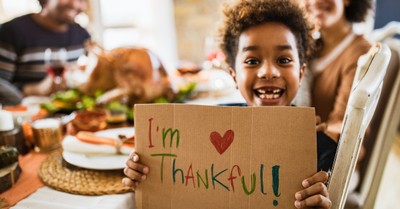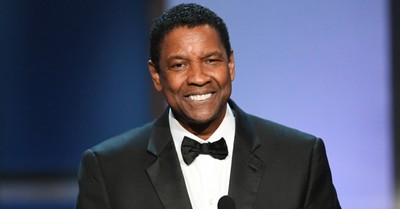Smart Girls Think Twice
- Jan Silvious Author
- Published Mar 10, 2008

EDITOR’S NOTE: The following is an excerpt from Smart Girls Think Twice by Jan Silvious (Thomas Nelson Publishers).
Making Choices with Confidence
Smart Girls Think Twice About Consequences
My mother and daddy met in a class at business college. He had a limited education but thick, dark hair and loads of wit and charm. She was a blonde-haired, blue-eyed beauty who doggedly put herself through college despite suffering the loss of her mother at the age of eighteen. Both were trying to better their chances for employment by taking the business course, but the biggest bonus to come out of that class was their meeting one another.
Each day they shared a package of crackers and a Coca-Cola for lunch. This bonded them together on a life journey that would last more than fifty-five years. Daddy often told me that when Mother walked into the classroom, he said to himself, “I’m going to marry that woman”—and marry her he did. I, their only child, was born five years later. The effects of the choices they made way back then continue to this very day.
That’s the way of choices: they always have consequences, many of which last longer than we initially could imagine. The word consequences sounds as if it always involves punishment, but it doesn’t. Consequences are simply the inevitable results of a choice, whether positive or negative. Every choice we make will bring consequences of some kind.
I learned about this relationship between choice and consequence at an early age by watching as my parents made big choices with great hopes and often huge consequences. In their early years, they lived hand to mouth. Mother stayed home to care for me and to make a home out of our tiny house. Daddy worked at a filling station owned by Mr. B. O. Jennings. (I love that name.) He pumped gas, washed car windows, changed oil and tires, and kept track of the money, a small percentage of which comprised his salary. It soon became clear that the money my dad brought in just wasn’t enough for our family. My parents loved each other, and they loved me, but they did not love the financial future they saw stretching before them. So they thought about making a life change, and then they thought again. They came to the conclusion that moving where there were good jobs was the best choice for them. Daddy quit his job in Birmingham, Alabama, and got on a bus headed north.
He arrived in Washington DC on a cold January day. For more than two weeks he walked the streets answering ads and looking anywhere he could for work, but no job offers were made. Though lonely and discouraged, he had no intention of giving up. He had thought once, he had thought twice, and the choice had been made. His settled conviction gave him a certain confidence. So he called and asked my mother to catch the bus to Washington and come be with him. She did just that, and with my little two-year-old self in tow, she arrived at the Greyhound bus station after an all-night ride to find Daddy waiting with open arms to take us to the rented room where we would make our new home together.
He had found a one-room flat with a double bed and two overstuffed chairs that could be pushed together to make a wonderful crib. There was no refrigerator, but a handsome windowsill would keep my milk cold. There was no stove, but we had a hot plate to warm soup and a great little mom-and-pop restaurant waited just around the corner. What more could we need? Oh yes, there was a bathroom—down the hall!
My parents had considered their situation and made a life-changing choice, and we lived with the consequences of that choice from then on.
As a consequence of my parents’ choice, not only did we live for a time in a one-room flat but I got to grow up near the nation’s capital, surrounded by museums, art galleries, libraries, streetcars, and buses. I could go and see just about anything my curious mind wanted to take in.
As a consequence of my parents’ choice, my dad ultimately found a good job and was able to provide a modest but stable income for our family for his entire working life.
As a consequence of my parents’ choice, my mother met a school principal who invited her to teach in an elementary school. For more than twenty years, my mother taught fifth grade in an excellent school system.
As a consequence of my parents’ choice, I was able to gain a college education without struggling to pay for it.
As a consequence of my parents’ choice, I was brought up in a solid, loving church where I heard the Word of God on a regular basis. (It took a while for the consequences of that choice to be revealed, but it was an outcome of their choice, nonetheless.)
As I watched, listened, and experienced my parents’ journey, I became intimately acquainted with the reality that choices must be made. I learned that it is impossible to go through life without deciding between the possibilities that wait behind Doors One, Two, and Three. Trying to play it safe by only looking at the Doors of Opportunity and declining to fling one open simply sets in motion a different set of consequences. We cannot avoid making choices; it’s an integral part of being human that goes back to the very beginning of time. God purposefully left choice in our hands. He could have made us little automatons, but instead He chose to give us free will, leaving us with the responsibility and the pleasure of making our own decisions.
The First Taste of Consequences
Eve, of Adam and Eve fame, was the first girl in all of history to make a choice—and the first to face the consequences of that choice. Let’s take a quick look at the drama that played out in the garden of Eden so long ago.
The serpent was clever, more clever than any wild animal GOD had made. He spoke to the Woman: “Do I understand that God told you not to eat from any tree in the garden?”
The Woman said to the serpent, “Not at all. We can eat from the trees in the garden. It’s only about the tree in the middle of the garden that God said, ‘Don’t eat from it; don’t even touch it or you’ll die.’” (Gen. 3:1–3 MSG)
Sounds to me like God had given Adam and Eve a simple, easy-to-follow command with clear and established consequences for disobedience. Unfortunately, Eve moved on impulse rather than thinking twice.
The serpent told the Woman, “You won’t die. God knows that the moment you eat from that tree, you’ll see what’s really going on. You’ll be just like God, knowing everything, ranging all the way from good to evil.”
When the Woman saw that the tree looked like good eating and realized what she would get out of it—she’d know everything!—she took and ate the fruit and then gave some to her husband, and he ate. (Gen. 3:4–6 MSG)
Eve chose poorly and soon discovered she would pay a high price in negative consequences.
GOD said, . . . “Did you eat from that tree I told you not to eat from?”
The Man said, “The Woman you gave me as a companion, she gave me fruit from the tree, and, yes, I ate it.”
GOD said to the Woman, “What is this that you’ve done?” “The serpent seduced me,” she said, “and I ate.” (Gen. 3:11–13 MSG)
Ah, the blame game. Eve had failed in making the most important choice of her life, and Adam had joined in her folly. Each fiasco, but that did not change the consequences: death had come—death to all they had, all they had dreamed of, and all they had relied on. It seemed they had assumed God would always keep them in the manner to which they had become accustomed, but He did not alter the appointed consequences for their blatant disobedience just because they were tempted by the enemy. They still bore the responsibility for their choice.
He told the Woman:
“I’ll multiply your pains in childbirth;
you’ll give birth to your babies in pain.
You’ll want to please your husband,
but he’ll lord it over you.”
He told the Man:
“Because you listened to your wife
and ate from the tree
That I commanded you not to eat from,
‘Don’t eat from this tree,’
The very ground is cursed because of you;
getting food from the ground
Will be as painful as having babies is for your wife;
you’ll be working in pain all your life long.” (Gen. 3:16–17 MSG)
Choices inevitably bring consequences; it was quite a lesson for the first girl in history to learn. Sometimes it’s easy to look at others, particularly our grandmother Eve, and think that, given the opportunity, we would not have fallen for the manipulations of the enemy. And yet when it comes to our own choices, we find that thinking twice and being smart is not as easy as it may seem. Like Eve, we find ourselves tempted to respond on impulse and rush headlong into a devastating decision. “For the world offers only a craving for physical pleasure, a craving for everything we see, and pride in our achievements and possessions” (1 John 2:16).
Our cravings and our pride make good choices difficult, especially if we haven’t decided ahead of time what principles will guide our decision-making process. It’s hard to choose against eating that luscious piece of cake even though we know it will undermine our attempts to slim down. It’s hard to put that darling outfit back on the store hanger when it fits perfectly but is out of our price range. And it’s hard to say no to a great job offer that strokes the ego even when we know it would take us away during a time when our kids and husbands need us. That’s why the second thought, that deeper consideration of potential consequences, is so crucial to making the best choices possible. As the master seamstress reminds her student, “Measure twice, cut once!” Choice without regret is a wonderful thing.
Compound Interest and Poor Choices
When it comes to choices, we have to be aware of the principle of compound interest. As with a successful investment, each positive choice you make increases your capital as a Smart Girl and puts you in a better position to make future choices. By contrast, every poor choice, like an ever-growing debt, accrues interest that must be paid.
Shannon knows this better than most. As an idealistic fifteen-year-old, she thought she knew everything. She knew she loved Jim, who was twenty, but she also knew her parents wouldn’t let her get married. She believed that if she slept with him, he would stay around until she was old enough to marry. She didn’t factor in the possibility of contracting a sexually transmitted disease. Eventually a strange pain down one leg and flu-like symptoms prompted a visit to her doctor. When he a said, “You have herpes simplex virus,” her teenage mind couldn’t understand what that meant. So the doctor told her the painful truth about how she’d become infected and the lack of a cure. She knew something was terribly wrong, but she had no idea then how it would affect her life. She stopped seeing Jim, disgusted with herself and disgusted with him. He tucked tail and willingly ran, but she was left with the consequences.
Now at age thirty Shannon knows all too well the effects of her choice because she’s still paying compound interest on the consequences of sleeping with Jim. She’s had several herpes outbreaks over the years since her diagnosis although they have become less severe. She grew up, went off to college, and became a successful marketing executive with a large firm.
Then a year or so ago she met the love of her life at church. Eric is handsome and godly. He treats her like a queen, and she adores him. They’re talking about marriage, but she knows that before she can say yes, she will have to face up to telling him about her past choice and the resulting consequences. She’ll have to say, “I’d love to marry you, but you need to know that I have a sexually transmitted disease that can affect you.” It feels overwhelming, and Shannon is torn about what to do. What will Eric think? Is he going to want to have “protected” sex for the rest of their married lives? Will he want her to carry his children? Should she tell him that any children born to her will need to be specially protected during birth to prevent them from contracting her disease? Since she hasn’t had an outbreak in a couple of years, is it safe not to tell him and just hope for the best? What would she do if he found out? What would she do if she infected him?
Oh, the mortification of a bad choice and, oh, the ongoing effects of compound interest. As negative consequences pile up, it can quickly feel as if you’ll always be trapped in debt to the past. The simple answer seems complex, the hard decision seems impossible, and the temptation to pile on more poor choices becomes almost overwhelming. The only way to resist is to deliberately choose to think twice and carefully weigh the consequences.
To break the cycle before she makes another poor choice, Shannon needs to Stop and examine the situation, Look to identify the issues, Listen for insight from the Lord, and then Look Again as she waits for the Lord to give her châkam. With the choice she makes, either she will prove herself a Smart Girl with an intelligent attitude toward life or she will revert to the old, immature thinking that brought about the consequence with its compound interest in the first place.
What Consequences Might You Be Overlooking?
I recently had dinner with a group of women who could hold master’s degrees from the School of Bad Choices and Miserable Consequences. In the setting of a church fellowship hall, they looked just like any group of friends enjoying a girls’ night out. They bantered, laughed, and talked about clothes, children, and men as girlfriends often do. But these seemingly lighthearted women were newly released from our local corrections facility, otherwise known as a prison.
At one point I asked a question that sobered the conversation: “Knowing what you know now, what would you think twice about next time? What choices would you make differently?”
A hand shot up at the back of the room. “I’d think twice about wanting to experience drugs. I just had to try them, and I ended up on the streets. I became a prostitute. They are so strong, so powerful. Even tonight I want to get high.”
Another hand went up. “I thought I had to be independent so early. I chose to leave home, to be on my own.”
And another hand. “I chose sex at an early age. I never thought of the consequences. It was just what I wanted to do!”
The next woman acknowledged, “I never thought the things I was doing would have an effect on my children. Now I know I hurt them with my choices. But I never gave it a second thought until I went to prison and I saw their pain.”
The hands just kept coming. “I should have thought about who I was hanging out with.”
“I thought I could handle everything myself.”
“I should have thought twice about the financial commitments I made.”
“I should have thought about how to deal with temptation. I didn’t think I could say no.”
The lives of these women perfectly illustrate the maxim that “sin will take you farther than you ever intended to stray, cost you more than you ever intended to pay, and keep you longer than you ever intended to stay.”3 Each one had paid dearly for her failure to think twice by enduring the harsh consequences of her choices. But, of course, you don’t have to end up in prison to experience the devastating penalties of compound interest on poor choices.
- More than fifty percent of the marriages in this country reportedly end in divorce.4 Could thinking twice have helped some of those women avoid the pain of such a division—or led them to avoid a painful marriage to begin with?
- Countless children are vulnerable because someone hasn’t thought twice about the danger of an overly interested neighbor, relative, or teacher. What devastating consequences could be headed off by someone asking, “What’s going on?” or “Is this an appropriate interaction?”
- Many friendships have ended in disappointment because too much was shared too soon. A second thought before “telling all” would have spared some women the hurt of realizing that certain things should be kept private.
- The Internet has made it all too easy to strike up inappropriate relationships with the opposite sex, and women quickly find themselves snared by the tentacles of an emotional affair—and sometimes more. Consider the heartache that could be avoided by thinking twice about the potentially disastrous effects of cyberflirting.
It’s never too late to turn around your thinking. But keep in mind that, like a rusty bolt, the longer you stay locked in position, the greater the effort required to slide toward healthier choices and the positive consequences they bring. The second look can give you a clearer perspective of how things are rather than how you wish they were. Even if you don’t like what you see, looking again gives you an opportunity to make a good choice.
For example, when their teenagers started down a road to rebellion, many a parent has been grateful that they had the common sense to see it for what it was rather than choosing to look the other way and hope the behavior would go away.
Taking that second look every time, whether you think you need to or not, is a healthy way to get your thinking going in the right direction. Consider that initial guilt you sometimes feel when you decline to sign up for a volunteer project because your heart isn’t in it. Thinking twice about the situation might give you the insight to remember the truth that “it is God who is at work in you, both to will and to work for His good pleasure” (Phil. 2:13 NASB). God gave you your desires and abilities, so anytime you feel a gnawing doubt about a situation, give it that second look. God may be speaking to you about a better choice for your time and attention.
Tune In to the Lessons All Around You
The process of shifting our perspective and thinking twice about consequences is not accomplished in a vacuum. One of the ways we “tune [our] ears to wisdom, and concentrate on understanding” (Prov. 2:2) is by being alert to what’s happening with the people around us. Smart Girls intentionally seek out people who clearly are making good choices. The Scripture says, “Become wise by walking with the wise; hang out with fools and watch your life fall to pieces” (Prov. 13:20 MSG). That advice is about as plain as it gets.
One of the basic principles for making good choices is prick up your ears and listen. We all can learn from one another.
Look around at the people in your world. If their lives are working because they have made good choices, lean into their space and figure out how they do it. If they’re content with their lives, find out why. If they have a thankful heart for whatever they have, pay attention to how their words and actions nurture gratitude. If they have well-behaved children, watch how they handle them. If they have a healthy marriage, watch how they treat their mates. If they express a sincere confidence in God even in the midst of difficulty, listen for clues about how they have learned to trust Him. If they excel at their work yet keep life in balance, notice how they manage their time. Watch! And then after you have watched, emulate what they do.
We also can learn from those who are suffering because of poor choices. The grace of God is often most tangible around these people. None of us makes smart choices all the time, so there are bound to be people in your life this very minute who are struggling and yet at the same time listening for wisdom, eager to hear what the Lord is saying to them. This is a great time to draw near with an open heart. You can listen and learn from their experiences even as you pray for the mercy and compassion each person needs amid consequences gone awry.
Of course, not all difficulties result from bad choices. Jesus spoke clearly on this subject when the disciples mistakenly made a broad assumption about a man born blind. As you read this revealing scene, picture yourself standing among the disciples, listening and concentrating in this teachable moment with the Master.
As Jesus was walking along, he saw a man who had been blind from birth. “Rabbi,” his disciples asked him, “why was this man born blind? Was it because of his own sins or his parents’ sins?”
“It was not because of his sins or his parents’ sins,” Jesus answered. “This happened so the power of God could be seen in him.” (John 9:1–3)
Jesus’ words were simple and straightforward. The man’s condition was not a consequence of someone’s choice; he was just blind. But there was a reason. There always is a reason for whatever challenge or opportunity we face, although we may not know it on this earth. When we face circumstances beyond our control, we are given the option to respond with wisdom or to react with folly. What we choose will determine the course of our lives.
We can learn from every experience if we will examine the situation, look at the underlying issues, listen for wisdom, and recognize the safety of thinking twice. The Smart Girl knows that every challenge offers a châkam moment.
Recognize the Limits of Logic
Even when we make the best choice we can with the information we have, life is full of uncertainties. We give ourselves the very best chance of succeeding when we think twice, but continually second-guessing yourself and waffling about your choice is just as debilitating as jumping in headlong with no consideration of what might happen as a result. Such agonizing can paralyze your thinking as you keep rehearsing the negatives to the point that you can’t see the possibilities.
You won’t enjoy the good decisions you have made if you are constantly looking over your shoulder wondering, What if I had done it differently? Is it too late to make a change? Because of my life experience, making choices feels like an adventure to me. I don’t fear making them. Others, many times because of their life experiences, find themselves twisted inside out each time they face a choice. If this describes you, I understand. Anxiety over the potential consequences of your decisions can make you feel as if your life is a field riddled with land mines just waiting to explode.
Sherry struggled for much of her life with the inability to make a decision. As a teenager, she was forced to make choices that were way over her head while being constantly admonished to “think before you act.” Her parents threw her into the deep waters of responsibility with little advice but plenty of harsh and noninstructive words. As a six teen-year-old, she was told that if she wanted a car, she’d have to earn the money to buy it herself, which she did.
Her father refused to go with her to choose a car, but when she came home with her purchase, he promptly upbraided her. “Why did you buy that car? Don’t you know it doesn’t get good mileage? It’s just a piece of junk. What were you thinking?”
Of course, Sherry wilted under his disparagement and immediately tried to take the car back. She tried every way she could to finagle the previous owner into giving her money back, but he wouldn’t budge; a deal was a deal. So she drove home in her long-anticipated first car with tears running down her face. “How could I be so stupid? Why didn’t I check on the gas mileage? How am I going to be able to afford this car?”
She lived at home a few more years, during which her dad seemed always ready to point out where she had missed the mark. Then she went away to college. She paid as many bills as she could from her job as a checkout clerk at the grocery store, and she covered the rest with student loans. Every choice made Sherry nervous. Was she doing the right thing? Was she taking the right classes? Was she dating the right guy? Would her dad approve? Was she really the loser he seemed to think she was? Self-doubt permeated her every decision, so she often put off choosing until the last minute and then frequently tried to change or cancel her choice.
Only after marrying a great guy, who patiently led her to understand that few choices are either absolutely perfect or completely flawed, has Sherry been able to do better in her choice making. She still hesitates, still second-guesses herself, but she is learning to do the best she can with what she knows and then trust God with the consequences. She’s discovered that He is easy to consult and faithful to answer. Even though from time to time her old insecurities creep in, she makes herself decide and then diligently reasons with herself about the truth she now knows: unlike her father, who didn’t know how to love his daughter, her heavenly Father is always there and more than willing to help her out when she needs it.
Like Sherry, you and I need to know that we will sometimes face choices for which the consequences cannot be fully predicted. Often this happens when we’re called upon to do something we know is right but we feel uncertain about where that choice will lead. A great question to ask at these moments is “When is it right to do right?” Of course, the answer is “always.”
When we face such choices, we have to guard against letting fear dominate our thinking. The unknown is a scary place, but we all have to go there when we are called upon to make good decisions without guarantees. That is one of the reasons we see the phrase “be strong and courageous” so often in Scripture (Deut. 31:6–7; Josh. 1:6–7, 9; 10:25; 1 Chron. 22:13; Ps. 31:24). Knowing God and believing that “where He guides, He provides”5 is the key to strength and courage. Even though we cannot always see the consequences that await us, we have a God who not only lives in our present but also dwells in our future. If you know God, really know Him on a personal basis, you can do what you know is right, confident that He has your back, your front, and both sides covered. The consequences are in His hands, and you are safe with Him. Your task is to choose the path you know is right, refuse to look back in worry, and remind yourself to be like the psalmist who said, “My eyes are always on the LORD” (Ps. 25:15).
The story of Jochebed, mother of Moses, presents a powerful example of a woman making the best choice she can under seemingly impossible circumstances and with no guarantee of the results. Let’s take a look at her situation:
Then Pharaoh gave this order to all his people: “Every boy that is born you must throw into the Nile, but let every girl live.”
Now a man of the house of Levi married a Levite woman, and she became pregnant and gave birth to a son. (Exod. 1:22–2:2 NIV)
Try to put yourself in this woman’s sandals. What would you do, given her two options? Either you could throw your baby in the Nile to face certain death, or you could do what little you could to save your child and leave the rest of the story with God. Let’s see what Jochebed chose.
When she saw that he was a fine child, she hid him for three months. But when she could hide him no longer, she got a papyrus basket for him and coated it with tar and pitch. Then she placed the child in it and put it among the reeds along the bank of the Nile. His sister stood at a distance to see what would happen to him.
Then Pharaoh’s daughter went down to the Nile to bathe, and her attendants were walking along the river bank. She saw the basket among the reeds and sent her slave girl to get it. She opened it and saw the baby. He was crying, and she felt sorry for him. “This is one of the Hebrew babies,” she said.
Then his sister asked Pharaoh’s daughter, “Shall I go and get one of the Hebrew women to nurse the baby for you?”
“Yes, go,” she answered. And the girl went and got the baby’s mother. Pharaoh’s daughter said to her, “Take this baby and baby and nursed him. When the child grew older, she took him to Pharaoh’s daughter and he became her son. She named him Moses, saying, “I drew him out of the water.” (Exod. 2:2–10 NIV)
This story always touches a tender place in my heart. I have nothing but respect for this woman of great courage. Like any of us, she would have preferred to raise her own son to adulthood, but she was forced to make a choice without guarantees. She had no idea of the consequences, but she knew putting her baby in the Nile to drown was not a choice she could make. So she did what she could by making him that little waterproof basket, and then she did what she had to by releasing him into the Nile and into God’s hands. Jochebed gets my vote for being a superior Smart Girl.
And her story provides a lesson for all of us who face tough choices about our children. I call it “Moses’s Mama’s Principle” and it goes like this: do what you can and leave the rest to God.
This principle came into play for Kristen, a single mother of three young boys and one teenager bent on testing every limit he could. She knew that she could not allow the behavior of her older son, Marcus, to continue influencing his young brothers, and she also knew that her ex-husband was willing to have their son live with him. She worried that sending Marcus away would damage their relationship even further, but the current situation clearly wasn’t working. Then one weekend he broke the house rules yet again and the whole scene exploded. He came in at 2:00 a.m., disrespected his mother with back talk, then picked on his brothers unmercifully when he finally got out of bed the next day. Kristen thought twice about the choice she had to make with no guarantees of a positive outcome. Then with fear and trembling, she told Marcus he had to leave. Of course, his departure was marked by all the drama he could create. After vowing never to come back in the house and never to speak to her again, he slammed the door on his way out.
True to his word, over the next two years Marcus remained with drawn and sullen, avoiding all of his mother’s attempts to make contact. She sent him notes and tried to see him in the school parking lot. He would have none of it and tried to punish her as much as he could. This child she loved with all of her heart seemed determined to test every ounce of faith and trust that she had placed in God. She clung to the words of Romans 8:28: “And we know that God causes everything to work together for the good of those who love God and are called according to his purpose for them.” She knew that when the Bible uses the word everything, it truly means everything, including the rebellious, headstrong behavior of a teenage son. Kristen also knew that the core issue for her was not loving her son and making a hard choice concerning him; rather, her challenge was to love God and believe that He was in control of the future. She had no guarantees that the consequence of her hard decision would be good. She just knew that she had considered the best choice to make, she had called out to God, she had thought twice, and then she had gone ahead.
And her decision was affirmed at last. After finding his own relationship with Christ, Marcus came back home at the age of eighteen with a totally changed attitude.
Of course, not all of our choices will turn out as we hope. That’s life. Sometimes, even though we think twice, there simply is no perfect choice; other times the right choice is obvious but just plain difficult. The best we can do is Stop, Look, Listen, and Look Again at the possible consequences of each option—then make the wisest choice we can, leaving the rest in God’s capable hands. There is great relief in knowing that God sees and God cares and, ultimately, God is in control.
Reprinted by permission of Thomas Nelson Inc., Nashville, TN., from the book entitled Smart Girls Think Twice copyright 2008 by Jan Silvious. All rights reserved. Copying or using this material without written permission from the publisher is strictly prohibited and in direct violation of copyright law.



















